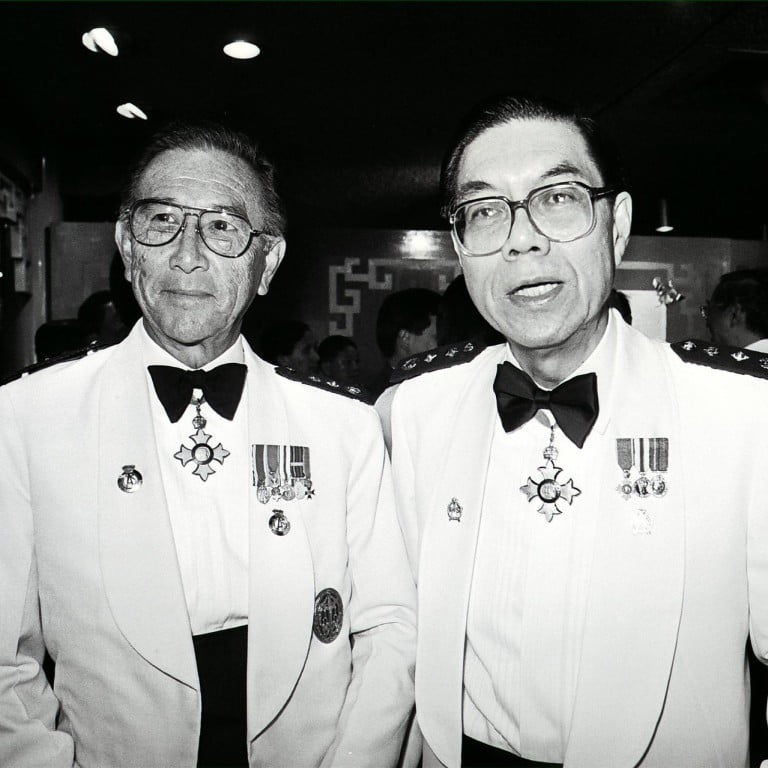
One man's covert war mission changed Hong Kong history
In August 1945 Roger Lobo - later a Hong Kong lawmaker - carried from Macau official confirmation war was over, allowing Britain to re-establish its rule and forestall a Chinese takeover, writes Jason Wordie
With the death in April of Sir Roger Lobo, 91, another vital link to the wider story of Hong Kong’s Pacific war years passed into history.
Seventy years ago last week, Lobo’s brave actions significantly helped change the course of events in Hong Kong. A modest man with an extraordinarily distinguished record of public service that continued until his death, Lobo seldom mentioned his end-of-war exploit; like his equally remarkable father, legendary Macau business figure Dr Pedro Jose Lobo, Roger simply got on with what needed to be done in the public interest, effectively and without fuss.

In the days that followed the atomic bombings of Hiroshima and Nagasaki, action plans were made. In the case of Hong Kong, it was considered vital that the imprisoned colonial secretary, Franklin Gimson, should be sworn in as the acting governor, and reactivate the formal machinery of the British administration, as soon as a Japanese capitulation had been confirmed.
This strategy was designed to ensure that Chiang Kai-shek’s Nationalists did not get to Hong Kong first. In the event, they made no attempt to do so. That it took senior Nationalist commanders – only a couple of hours away by air – more than a fortnight not to arrive, is a story that still awaits thorough examination.

In the unstable period immediately after the Japanese capitulation, when peace was fragile, two heavily armed fishing boats departed from Macau. The usual ploy for covert missions going in and out of the city was for one vessel to create a diversion to draw attention (and possibly enemy fire) while the other, more important craft passed undetected. Other fishing boats – manned with heavily armed, vehemently anti-Japanese pirates – escorted at a distance.
On arrival in Hong Kong, the document was delivered to Gimson via a third party, and the rest is history.
Macau’s perennially shadowy business realities played their part in the mission’s success. I once asked Sir Roger from where had the fishermen got their arms and ammunition? “Oh, my father’s associates had their own contacts, I believe …” His voice trailed off, and we left it at that.
The full story has died with him.
For more on Hong Kong history and heritage, go to scmp.com/topics/old-hong-kong

